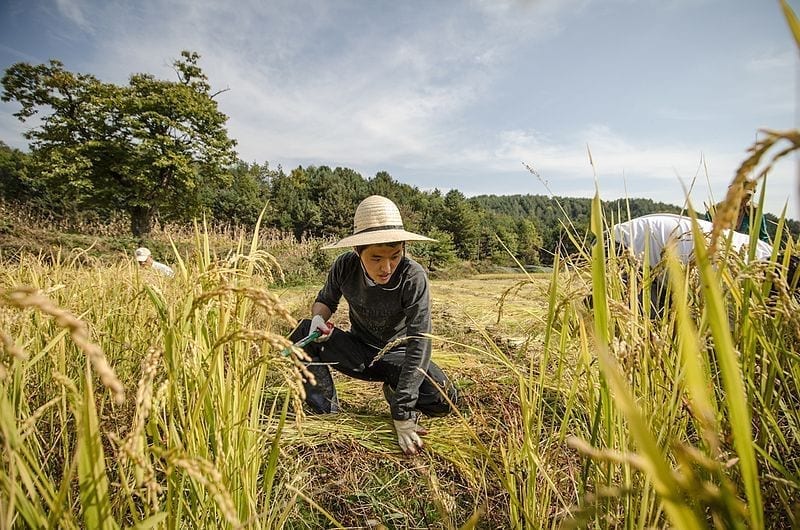Today, most of us are a long way from directly interacting with the resources we need to live. So, why is this a big deal? What does it all mean? On one hand, societies grow in complexity because complexity solves problems. On the other hand, every level of complexity that we add, like the layers of an onion, means introducing intermediaries to the equation, and each middleman adds a cost to the expense of living our lives
Yesterday’s post addressed the evolution of intermediaries as population grew, resources needed to be managed, and human societies increased in complexity.
Today, most of us are a long way from directly interacting with the resources we need to live. To build upon yesterday’s example, we used to obtain our food directly from nature. As we settled down and began to cultivate specialized skills, people took up other occupations and instead obtained their food from farmers. As cities developed, another level of complexity was added between us and the farmer, perhaps in the form of a grocer. The spread of suburbs pushed the farmer further away, and then a distributor brought the food from a farmers’ collective to the store. Industrial food processing added more intermediaries, as did internet shopping, importers, packagers, and restaurants. Everyone wants their cut. If we use an Amazon Prime membership to buy a box of crackers, we get that farmer’s wheat through a dizzying array of middlemen, most of whom we don’t know and will never meet.
So, why is this a big deal? What does it all mean?
On one hand, societies grow in complexity because complexity solves problems. Problems arise all the time in human societies. How shall we get food? Where shall we put our waste? How can we get along without killing each other? How can I stay in touch with my friends and family while working ten hours a day to pay for everything?
On the other hand, every level of complexity that we add, like the layers of an onion, means introducing intermediaries to the equation. Each middleman adds a cost to the expense of living our lives, even if it’s not one that we actively realize we’re paying. For example, farmers and ranchers receive only 16 cents for every dollar we spend on food. The rest is the cut that each middleman takes. With a profit margin that slim, it’s amazing farmers (or anyone else) can make a living.
One of the things mechanized agriculture and the “get big or get out” ethos of the Earl Butz era (and the burst of the resulting bubble) did was to chase farm families off the land in droves. With only 1% of the U.S. population working as farmers, everybody else had to find some other kind of job, more or less removed from primary production. Industry provided waves of Americans leaving the farms with jobs in factories. Transforming wheat into flour and bread added value to the wheat, provided a profit for the factory owner, and paid the salary of the workers. Sure, it cost more to buy a loaf of bread than to buy a loaf’s-worth of unprocessed wheat, but workers coming home from a long day at the factory appreciated the convenience of store-bought processed foods. Problem created and simultaneously solved, at least for a while.

Automation and outsourcing pushed workers out of the factories just as surely as automation pushed families off the small farms. At the same time, companies are becoming more creative in finding new ways to insinuate themselves between us and the things we need. Adding complexity creates jobs for the middlemen, of course, which partially solves the problem. While companies like Facebook connect (and come between) us and our friends and family, Amazon makes shopping almost too easy (while adding another middleman to the experience), and Google provides a powerful way to make sense of the multitude of pages on the Internet (while taking note of everything we look for), their services come at a cost both financial and social.
In this case, being able to observe and collect data about practically every move we make on the Internet is the way these companies earn the revenue to make their services available free of charge to any user. This may not bother you. After all, who cares if Facebook tells advertisers or the government that you share pictures of puppies and that you like Beyoncé? Unfortunately, not all of our data, once aggregated, is as innocent as it appears. Even if we’re not paying for it in cash money, complexity has its costs.
What about those costs? Good question, and one for tomorrow’s post.


Join the conversation!